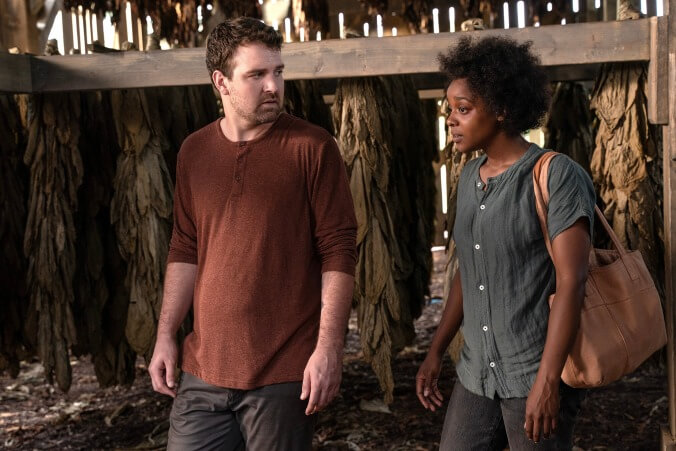Kindred review: compelling FX drama takes a modern-day look at the horrors of antebellum life
In this small-screen adaptation of Octavia Butler’s novel, a 21st-century woman has to protect her slave-owning ancestor

Depictions of slavery on TV have come a long way since Roots first brought America’s original sin to our sets. In recent years, series like Underground, The Underground Railroad, and The Good Lord Bird have explored the antebellum period and the complexities of the lives of enslaved people, correcting a long history of African-American ancestors being written as mindless servants and racist caricatures. The new FX series Kindred, which streams exclusively on Hulu next week, continues this wave, as the long-awaited adaptation of the Octavia Butler novel examines the often-unspoken legacy of slavery on modern-day society.
The series centers on Dana (Mallori Johnson), an aspiring television writer newly arrived in L.A. after the seemingly impulsive sale of her late grandmother’s Brooklyn brownstone. Dana’s parents passed away when she was young, and her remaining family disapproves of her choices, so she finds comfort in Kevin (Micah Stock), a musician and waiter. Amid the move-in, the 26-year-old has also been experiencing troubling visions; in the first, she finds herself in a nursery, where she helps a baby in imminent peril before encountering her deceased mother. The second trip cannot be written off as a dream; she’s transported to the bank of a river, where she rescues a red-haired boy from drowning. It’s clear that she’s been transported through space and time, and though it sounds impossible, she knows something real and dangerous is happening.
Those familiar with the genre-bending novel know that Dana has been sucked into a time-bending symbiotic relationship with the red-haired boy, who is actually her ancestor, Rufus Weylin (David Alexander Kaplan). Rufe is the son of a Maryland plantation owner in the 1800s, and Dana is the direct descendant of the child he will have with one of his slaves. In order for Dana to ensure her own bloodline, she’ll have to protect the boy long enough for him to father her ancestor, while surviving the horrors of slavery and the whims of the boy’s cruel father Tom (Ryan Kwanten) and possessive mother Margaret (Gayle Rankin).
The premise itself is engrossing enough to propel an eight-episode season, and showrunner Branden Jacobs-Jenkins expands on the book’s plot to include subplots and characters that enhance the show’s main quandary: How would a modern-day Black woman withstand the abuse of slavery? Jacobs-Jenkins deftly intertwines past and present, showing why Dana and Kevin (who also time-traveled to the 1800s) can’t shake off what they’ve experienced once they return to the modern day. The looming tension surrounding the Weylin plantation continues in scenes in which the pair has to deal with the surveillance of Dana’s “helpful” neighbors, who militantly try to keep the peace on their Silver Lake block with NextDoor surveillance and threats to call the police. Meanwhile, a new storyline involving Dana’s mother Olivia (Sheria Irving) nods to the legacy of lost histories of African-American families, while also adding an intriguing layer to the overall mystery.
